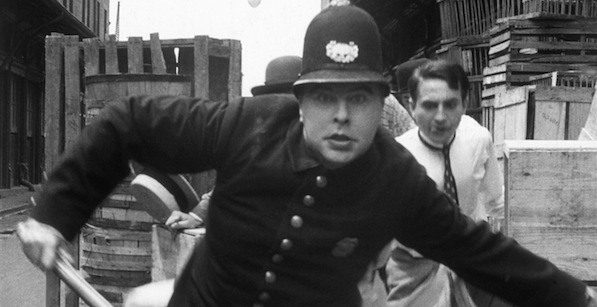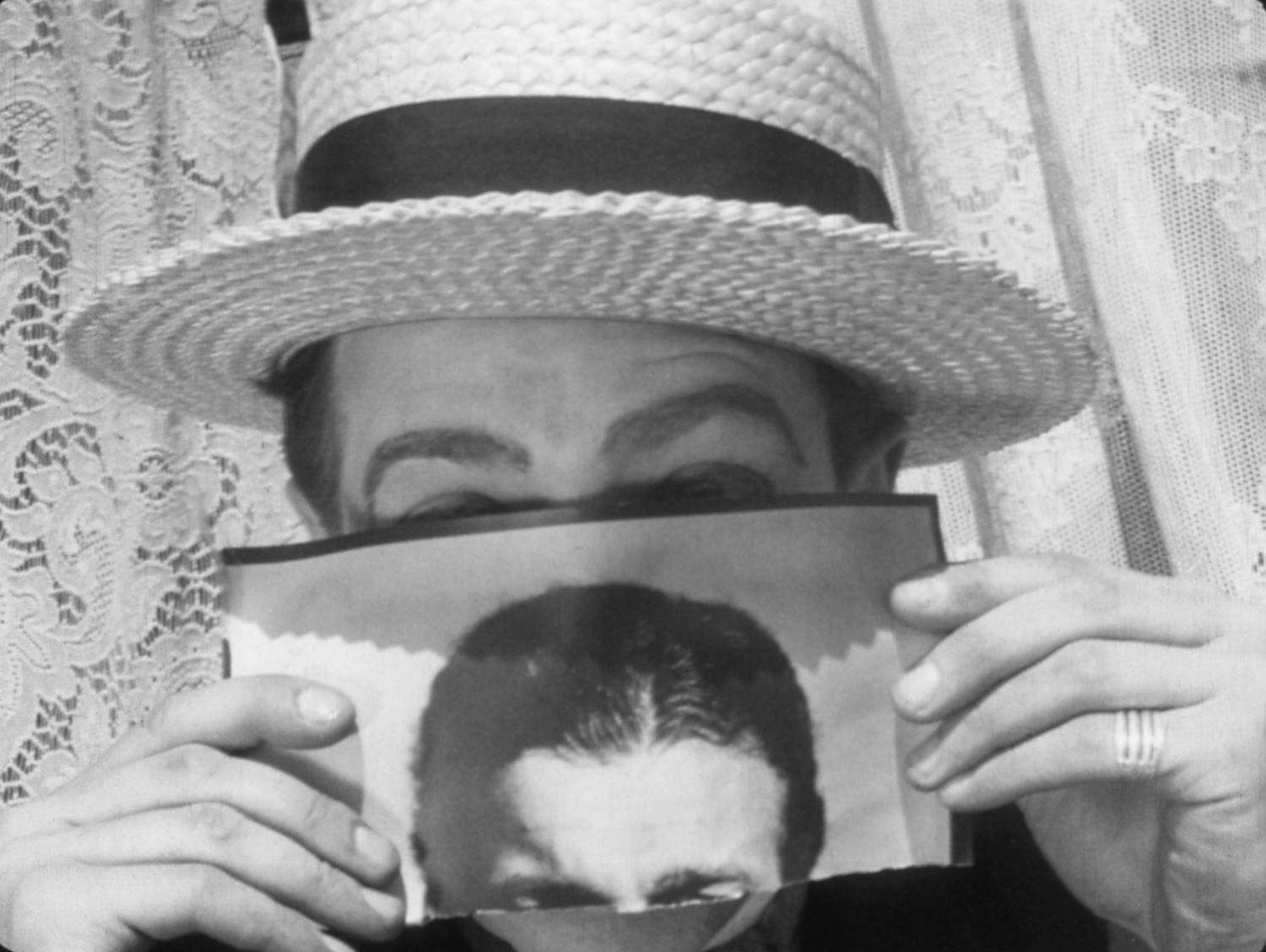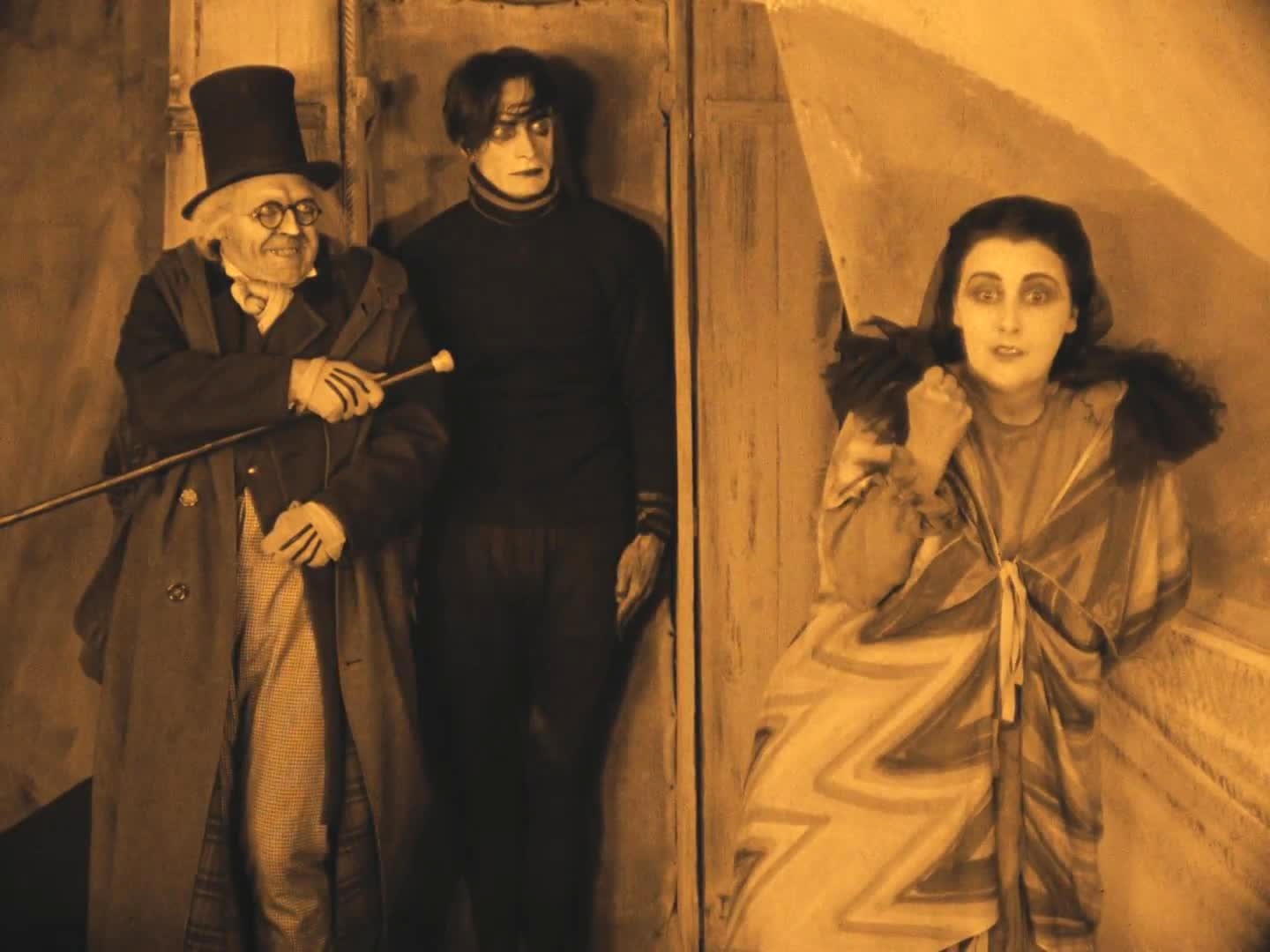[Editor’s note: We present this list as part of “Fifty Days, Fifty Lists.” For more lists, see “Why Lists?“]
We never stop recovering our film history. In 2014 alone we found a 1916 version of Sherlock Holmes starring the legendary stage actor William Gillette (the only known footage of the man considered the definitive Holmes of his era in character) and an unfinished orphan film shot in 1913 starring black Broadway star Bert Williams.
The digital tools have given filmmakers, producers, studios and film archivists and restorers the ability to resurrect damaged prints and rescue damaged footage previously beyond the scope of physical and chemical methods and the transition from film prints to theatrical digital formats for repertory and revival showings has created new incentives to restore and remaster classic films for new theatrical screenings. (There’s plenty of controversy over this shift, with many partisans arguing that movies shot and originally shown in celluloid should be preserved and only screened that way.)
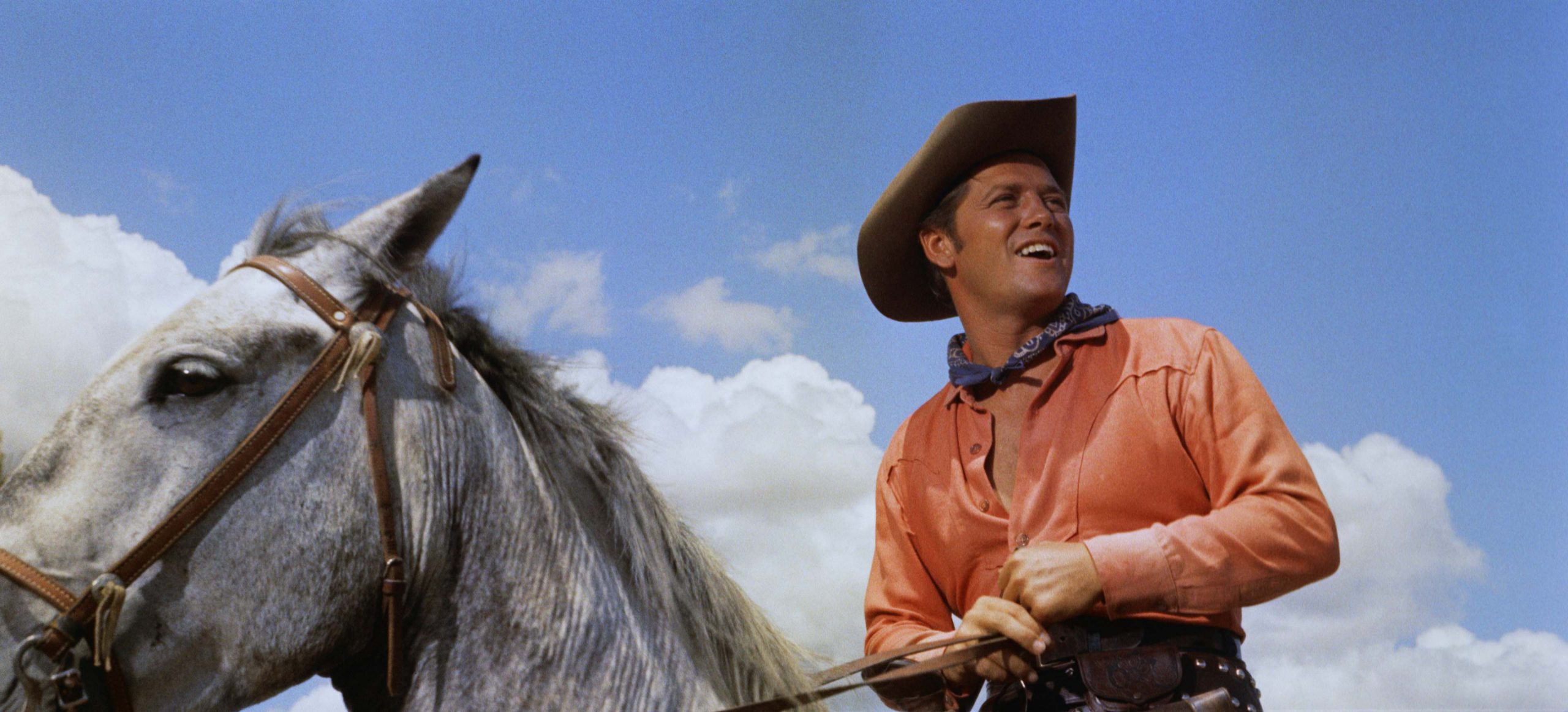
But it’s still a specialized audience and film lovers outside of major metropolitan areas often have no opportunities to see these restorations and revivals on the screen. At least until they are made available to home video formats. For instance, while the new restoration of the original Todd AO version of Oklahoma! premiered at the Turner Classic Movies festival in April, it has yet to reach audiences outside of specialty theaters and the China Film Archive restoration of the 1934 Chinese classic The Goddess has only shown in film festivals.
So this list is focused on debuts and rediscoveries of classic films and cinema landmarks and restorations of great films and revivals of previously unavailable movies that became available to viewers at home in 2014. Not just a countdown of the best, it’s a survey of the breadth of restorations and rediscoveries that film lovers now have a chance to see regardless of where they live, as long as they have a web connection and a Blu-ray player.
Too Much Johnson (1938) (Fandor, streaming)
The home video event of 2014 is not a disc debut or a Blu-ray special edition but a piece of lost film history found, restored and streamed on the web. Shot by Orson Welles in 1938 (two years before he went to Hollywood and began production on Citizen Kane) as a kind of experiment to accompany a stage production of the theater farce Too Much Johnson, the film was never finished by Welles beyond a continuity work print that was thought to have been destroyed in a fire in Welles’ Spanish home in 1970. The 35mm nitrate work print was found in 2013 in a warehouse in Italy (in Pordenone, as it happens, home to the greatest silent film festival in the world) and restored in an international effort. After a series of special screenings, the film (in both the original 66-minute work print and a 34-minute “reimagined” version, with outtakes and duplicate shots removed and footage edited into an “educated guess” of how it would have played in finished form) was made available to audiences the world over for free via the National Film Preservation Foundation website and in an HD edition through Fandor. I celebrated the film and its discovery for Keyframe earlier this year.
Noon Wine (1966) (supplement to The Killer Elite, Twilight Time, Blu-ray)
Sam Peckinpah‘s 1966 made-for-television drama Noon Wine is an intimate 52-minute production shot on a combination of film and videotape and broadcast on TV once. Adapted by Peckinpah from the short novel by Katherine Ann Porter and shot in a stripped down style that puts the focus on character and language, it stars Jason Robards and Olivia de Havilland as a frontier couple who hire a Swedish drifter (Per Oscarsson) with a past. Robards plays one of Peckinpah’s most nuanced characters and de Havilland is a quiet force of moral backbone. It’s been a holy grail for Peckinpah fans, available only in bootleg editions of a murky kinescope recording and rare educational screenings. A one-inch videotape copy of the master recording was recently uncovered and that’s the basis of its home video debut on the Twilight Time Blu-ray release of The Killer Elite. This is a case of curatorial devotion, pure and simple. Twilight Time co-founder and disc producer Nick Redman is a Peckinpah scholar (he produced the Oscar-nominated The Wild Bunch: An Album in Montage) and he rounded up fellow Peckinpah devotees to provide commentary for the production. It shows its age and provenance—lo-fidelity image, electric color, the occasional tape glitch—but looks remarkably good considering its unlikely rescue from oblivion.
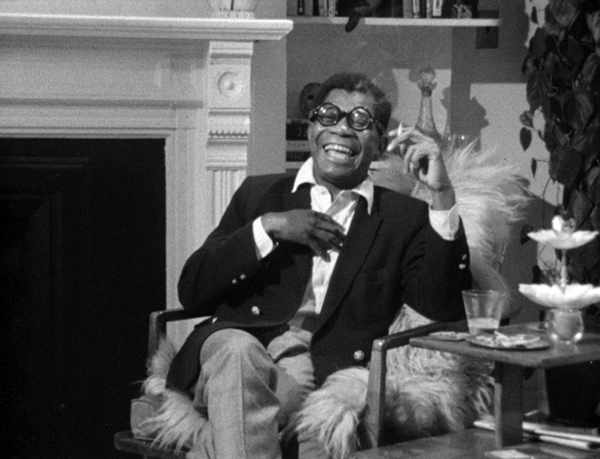
Portrait of Jason (1967) (Milestone, Blu-ray and DVD)
Straddling the line between documentary and performance art piece, you could call Portrait of Jason a stream of consciousness character study. Jason Holliday, aka Aaron Payne, is a gay black hustler and Shirley Clarke shot her portrait as an all-night extemporaneous monologue from a man whose voice would otherwise never be heard in any media form in 1967. In his round coke-bottle glasses and collegiate blazer, Jason plays to the camera and skeleton crew (heard just off camera throughout but never seen), telling stories and doing impressions. It’s a scruffy, raw film that got scuffed up over the decades and had never been released on home video in the U.S. until Milestone undertook “Project Shirley.” This restoration, built on materials found in worldwide search, recovers lost footage and visual detail but leaves the roughness of the 16mm shoot intact because Clarke treasured that gritty texture. As Milestone’s Amy Heller explained in an interview for Keyframe, “You’re always walking a fine line between cleaning up too much and leaving in too many scratches.” And Milestone fills the disc with invaluable historical bonus material, from outtakes to archival interviews with Clarke and “The Jason Holliday Comedy Album,” a rarity that makes an astounding companion piece to the film.
The Cabinet of Dr. Caligari (1920) (Fandor, streaming, and Kino Lorber, Blu-ray and DVD)
The granddaddy of German Expressionist cinema, The Cabinet of Dr. Caligari is one of the most influential films of its time. With its painterly sets of jutting beams, leaning walls and heavy black lines, the film dropped audiences into an aggressively unreal world and celebrated its theatrical artificiality as a vision of madness and horror. It set the style for a movement, influenced a generation of filmmaker from Fritz Lang and Universal horror movies, and created images so vivid they are still referenced today. Previous editions have suffered from damaged footage, missing frames and inferior source material. The Friedrich Wilhelm Murnau Foundation (which previously spearheaded the astounding restoration of the definitive Metropolis) undertook the comprehensive digital restoration of this landmark using the original camera negative as the primary source (previous releases were taken from archival prints), restoring the film to its complete, uncut form and giving the restoration unprecedented clarity, stability, and detail. It was a two year project and the efforts are visible in every frame of this reclamation. We know that silent cinema looked vivid and bold and beautiful but it takes a restoration of this quality to remind us of how that translates to the viewing experience. This restoration made its world premiere at the 2014 Berlin International Film Festival and made its American premiere at the San Francisco Film Festival’s “Silent Autumn” program in September. It is currently available to stream on Fandor and comes to Blu-ray and DVD from Kino Lorber in November.
Once Upon A Time in America: Extended Director’s Cut (1984) (Warner, Blu-ray, DVD, and Digital HD)
Sergio Leone’s portrait of a 20th century American success story as a gangster epic of greed, loyalty, betrayal, and power, seen through the haze of an opium high, is his most passionate, elegant, brutal, and elegiac film. Originally released in the US in a butchered version cut by over an hour and torn from its evocative time-shifting structure to a traditional linear narrative, it was restored to its 229-minute European cut decades ago but Leone intended an even longer cut. Earlier this year it was expanded with an additional 22 minutes of footage that Leone was forced to cut out before its Cannes premiere in 1984. Among the restored sequences is a legendary scene with Louise Fletcher as a cemetery director (previously only glimpsed in publicity stills), Robert De Niro‘s first meeting with Darlanne Fleugel, and a great third act scene with James Woods and Treat Williams that illustrates the shift in power over the decades. They don’t reframe or redefine the film but they fill out details and add dimensions to the story and characters that enrich the experience. It debuted at Cannes and made its American premier at the New York Film Festival, but the first opportunity for the vast majority of American Leone fans to see his intended vision is on Blu-ray or DVD.
Cry Danger (1951) (Olive, Blu-ray, DVD)
Dick Powell developed Cry Danger as a follow-up to Pitfall (1948), raising money outside of Hollywood and producing it himself. He promoted film editor Robert Parrish to his directorial debut and gave himself a terrific role as the sardonic Rocky, a guy out to clear up a frame that landed him in jail for a crime he didn’t commit. It’s a smart, snappy little film noir shot largely on location in Los Angeles and like a lot of films made outside of the studio system, it fell through the cracks. The Film Noir Foundation undertook the resurrection of the orphan film in partnership with the UCLA Film Archive. Together they searched for the best materials available and created a new negative and 35mm prints for screening. That restoration is the basis of the disc debut from Olive, which lacks sadly any supplements but looks marvelous. And when you come down to it, it’s all about the film, and this a minor gem of the genre finally getting its due.
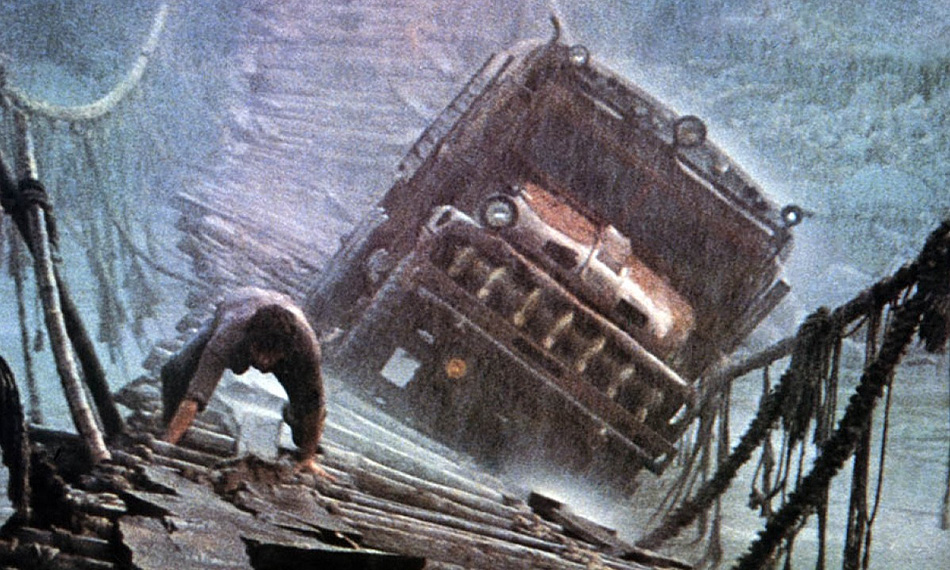
Sorcerer (1977) Warner, Blu-ray, DVD, Digital HD)
William Friedkin spent years trying to untangle the rights to his 1977 film, an expensive dream project that he made after hitting it big with The French Connection and The Exorcist. It’s a largely faithful remake of Henri George-Clouzot‘s survival thriller The Wages of Fear but Friedkin brings a very different sensibility to the experience. Co-produced by Paramount and Universal, was a financial flop but its reputation grew over the years even as it became harder to see. Neither studio was sure who owned what rights and didn’t care enough to sort it out. And after suing to force the studios to clear up the legal morass, Friedkin supervised a restoration, mastered from a 4K scan of the original 35mm negative. It debuted at the Venice Film Festival in 2013 and played special screenings around the country before releasing it on Blu-ray in April, followed by DVD and Digital HD editions. As a curious footnote, after clearing up the rights issues with Paramount and Universal, it was Warner that ended up releasing the film.
Nightbreed: The Director’s Cut (1990) Scream Factory, Blu-ray+DVD Combo)
Clive Barker’s Nightbreed, adapted from his novel Cabal, was taken from his hands by the studio. A celebration of misfits and monsters in a weird story of fear and prejudice filled with Biblical references and mythic resonance, the film was neither the dark gorefest of Hellraiser nor a conventional, easily marketable monster movie, and it was cut down drastically from his 142-minute rough cut (which made the bootleg rounds in a version called “The Cabal Cut” taken from a video workprint). Barker was not involved in the final cut. Nightbreed: The Director’s Cut is a new version of the film overseen by Barker and restored by Mark Allan Miller, who hunted down the original footage discarded from the rough cut. This is the version that Barker claims as his director’s cut and Miller performed a superb job of restoring the elements. While Warner Bros. released the theatrical cut on DVD a decade ago, the restoration was undertaken in partnership with Shout Factory, which released the film on its Scream Factory imprint.
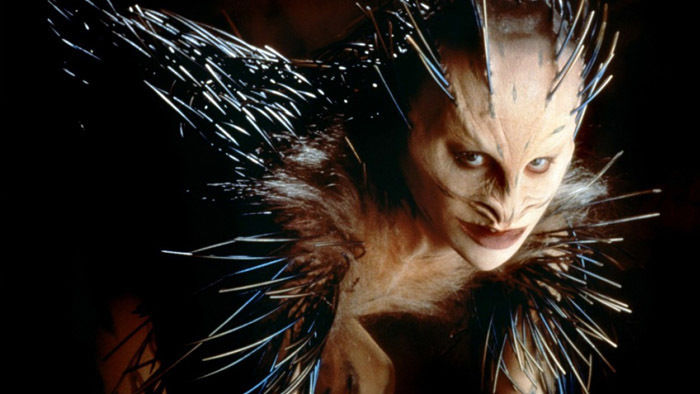
The Counselor–Unrated Extended Cut (2013) (Fox, Blu-ray)
While I wouldn’t call The Counselor an example of a masterpiece compromised by studio pressure, the release of Ridley Scott’s preferred, longer version of the film (it’s titled “Extended Cut” but it is a Director’s Cut in everything but name) shows just how seemingly minor changes in tone and rhythm and dialogue can completely change the way a film works on you. There are only a few new scenes; mostly Scott restores lines, expands scenes, or offers alternate versions (like the opening sex talk between Michael Fassbender and Penelope Cruz, which is both dirtier and more playfully intimate). And though it doesn’t add more violence, it is more savage and brutal while the narrative, carried by Cormac McCarthy’s lyrical monologues and dialogues, has a more natural flow. In this cut, Scott and McCarthy are in synch and the actors are players in an unforgiving opera taking their turns at McCarthy’s spoken arias. It’s still as dark as they come, but there is something perversely beautiful in this version, one of the rare releases that justifies the home video Director’s Cut as a genuine expression of the filmmaker’s intentions.
Verdun: Looking at History (1928) (Carlotta US / Kino Lorber, DVD)
Léon Poirier’s war epic is a sweeping portrait of the battle of Verdun, an eleven-month siege where the French held the line against an offensive of overwhelming German forces at the cost of 300,000 solders on both sides. Produced to commemorate the tenth anniversary of the end of the war to end all wars and dedicated it to “all the martyrs of the ugliest passion that is war,” it is part human drama and part history lesson, complete with detailed statistics and animated maps of troop movements. While Poirier favors the French and can’t avoid the patriotic celebration of the French achievement, he doesn’t vilify the Germans or judge the soldiers and ultimately it is about death and loss and destruction. Celebrated upon release for its amazing recreations of battle scenes (which Poirier intercut with newsreel battle footage), it was eclipsed by the coming of sound (Poirier reworked it as a sound feature a few years later) and all but disappeared in subsequent years. It was restored in 2006 by the Cinematheque de Toulouse but was only screened a few times stateside since. Kino’s DVD release finally makes it available to American audiences.
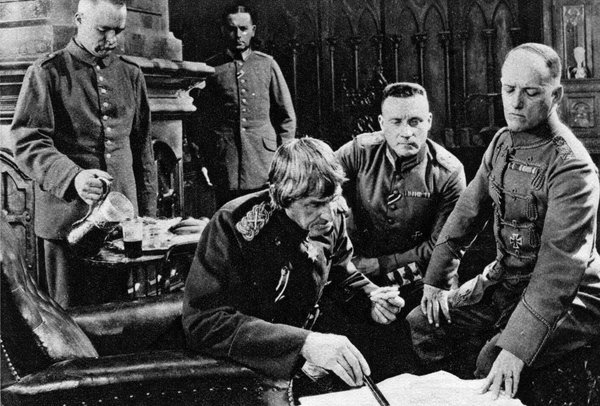
Special mention: The Conformist (1970) (Raro, Blu-ray and DVD)
Bernardo Bertolucci’s masterpiece (in a career with no shortage of great films), a dense, visually intricate adaptation of Alberto Moravio’s novel, was originally released in the U.S. in a version cut by a few minutes. It was restored to its full version in 1994 and released on a fine DVD edition by Paramount a decade ago. There’s no additional footage in this new restoration commissioned by the Cineteca di Bologna in 2011 (mastered from the original negative in 2K) but it was supervised by Bertolucci and cinematographer Vittorio Storaro. It brings out the richness of Storaro’s soft nostalgic colors and an added level of detail that you can appreciate in both theatrical DCP screenings (it made its American theatrical debut this year) and on Blu-ray on high-end home theaters (Raro’s release comes out on November 25). That’s the right way to do a restoration: keep that film texture and color while pulling out an image that looks like an opening day print fresh from the lab.
Honorable mentions (More films that made their respective American home video debuts in superb editions on DVD and Blu-ray:)
Show Boat (1935) (Warner Archive, DVD)
Il Sorpasso (1962) (Criterion, Blu-ray and DVD)
Judex (1963) (Criterion, Blu-ray and DVD)
Une Chambre en Ville (1982) (on The Essential Jacques Demy, Criterion, Blu-Ray and DVD)
The films of Alain Robbe-Grillet: L’immortelle (1963), Trans-Europ-Express (1966), The Man Who Lies (1968), Eden and After (1970), N. Took the Dice (1971), Successive Slidings of Pleasure (1974) (Kino Lorber, Blu-ray and DVD)

